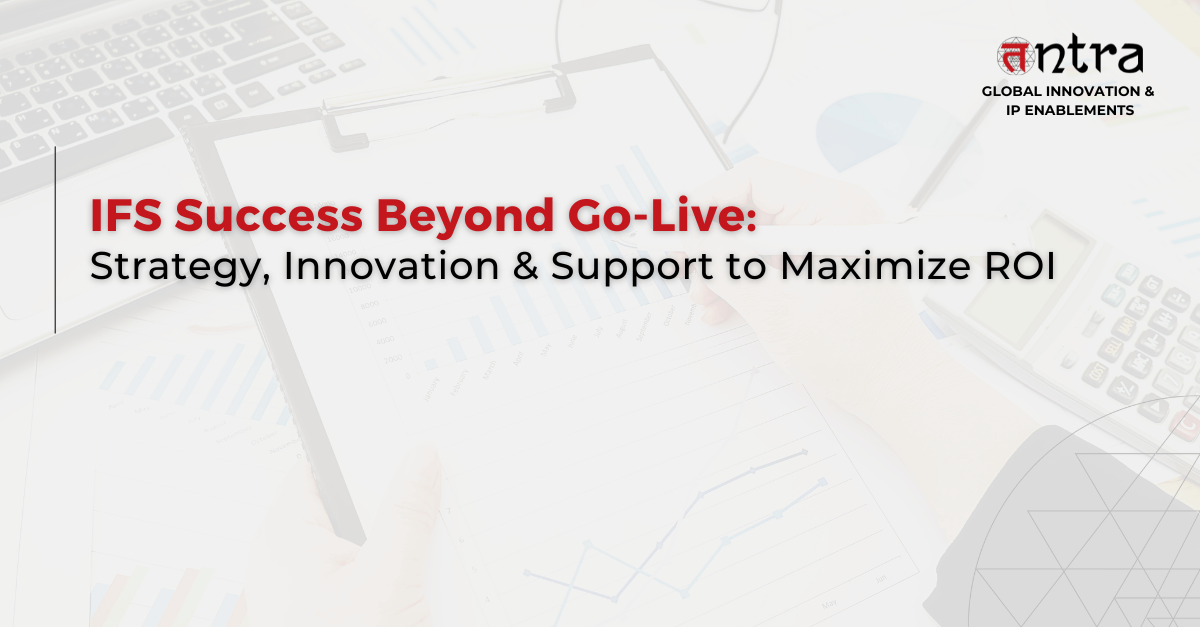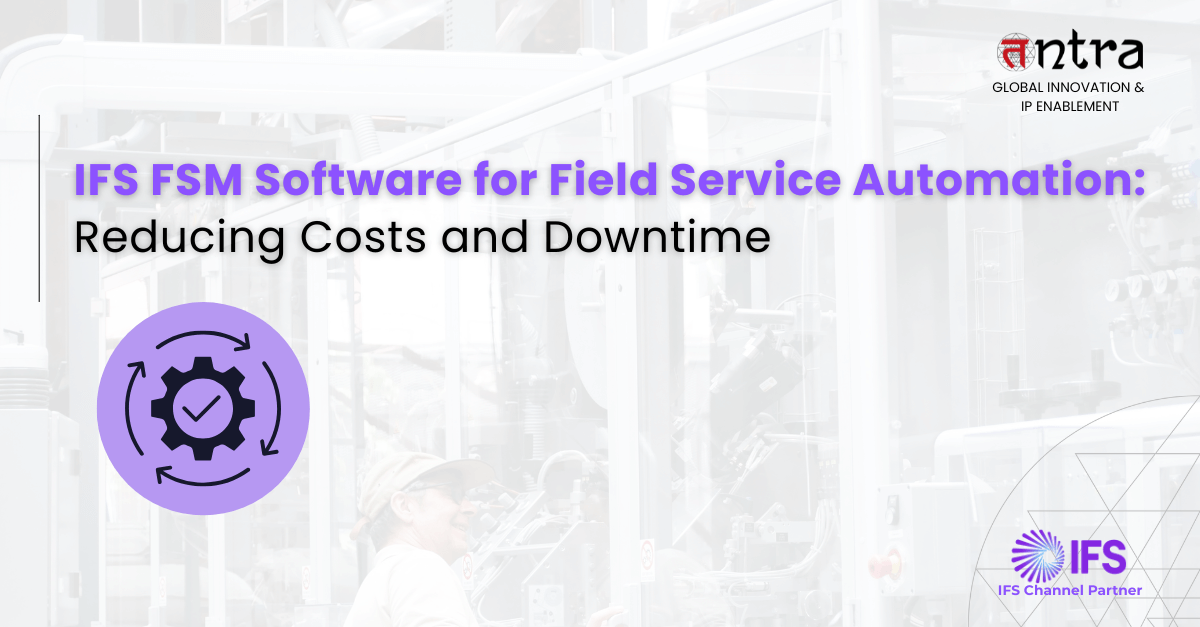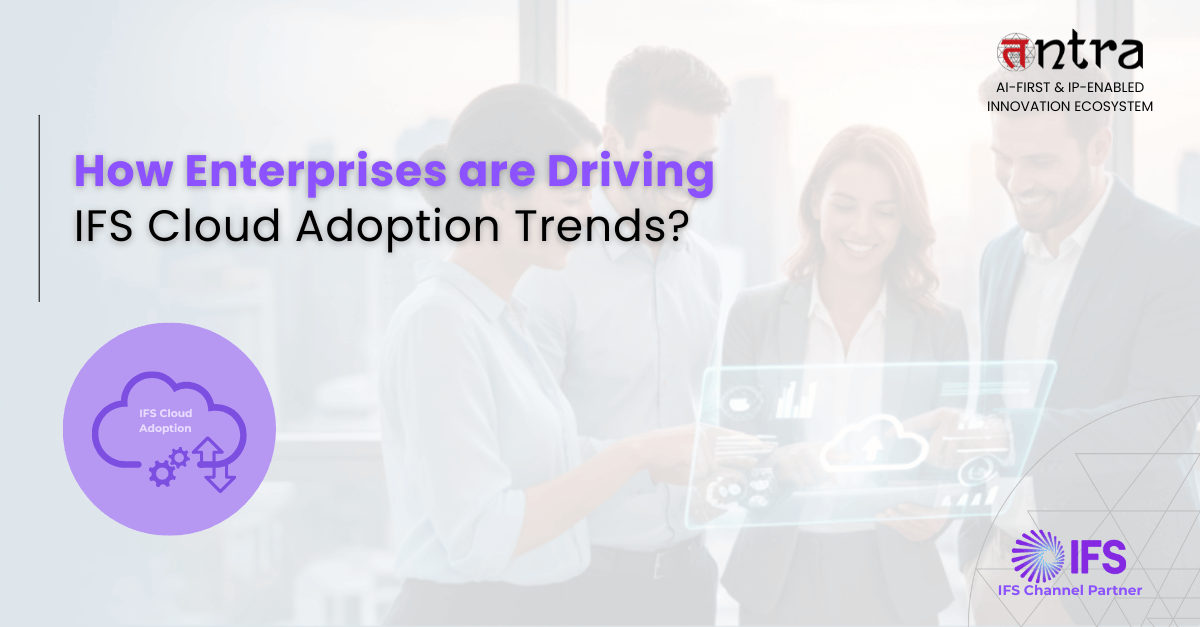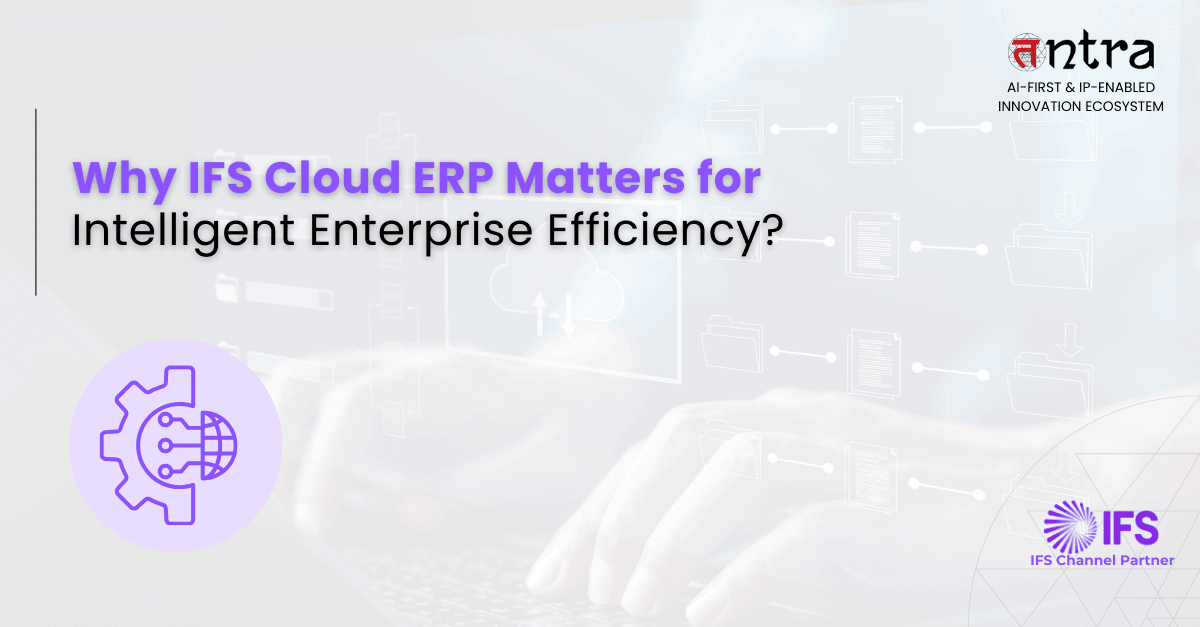
IFS Success Beyond Go-Live: Strategy, Innovation & Support to Maximize ROI
Table of Contents
ToggleThis article highlights how businesses can achieve sustained success with IFS by focusing on strategy, innovation, and post-go-live support. It covers the importance of aligning IFS with business goals, maintaining system agility, leveraging innovation, and training users for adoption. With real-world examples and insights from Tntra’s proven approach, it shows how IFS can drive ongoing ROI. Ideal for decision-makers, it emphasizes that the real value of IFS starts after implementation—and continues with the right plan and partner. Continue reading to learn more.
Reaching the go-live stage with IFS is a big milestone. But the truth is, it’s not the finish line—it’s just the start. Many companies think the hard part is over once the system is live, but the real value comes from what happens next.
Sustaining IFS success means having a clear plan that goes beyond implementation. You need a strong IFS strategy that connects your business goals with IFS capabilities, stays flexible as your business evolves, and includes room for continuous improvement.
The winning formula is simple:
IFS Strategy + Agility + IFS Innovation = Long-Term IFS Success
Whether you’re in manufacturing, finance, or services, the businesses that keep seeing results from IFS enterprise solutions are the ones that treat it as an ongoing journey—not a one-time project.
IFS Strategy for Sustained Success and Long-Term ROI
Make the System Work for Your Business Goals
A successful IFS ERP implementation strategy isn’t just about going live—it’s about aligning the system with what matters most to your business. Maybe that’s cutting down maintenance costs, improving delivery timelines, or giving your field teams better visibility.
When your IFS setup is built around real business goals, the system becomes a powerful tool, not just software.
Plan for Change from the Start
Markets shift. Customers need to change. New regulations pop up. That’s why your IFS setup needs to be flexible from day one. Building agility into your IFS enterprise service management helps you stay ahead instead of falling behind.
Think modular solutions, configurable workflows, and integrations that can evolve with your business.
Long-Term ROI Needs a Long-Term Plan
Without a long-term plan, you risk losing momentum after go-live. A clear IFS strategy with regular check-ins and defined goals helps you track progress and course-correct when needed.
For example, in asset-heavy industries, a three-year roadmap might look like this:
- Year 1: Use IFS enterprise service management to streamline maintenance and reduce breakdowns.
- Year 2: Add IoT integrations for predictive maintenance.
- Year 3: Expand to mobile tools for on-site teams.
This kind of approach ensures you’re always building on what’s working—and continuously improving your IFS software ROI.
What Happens After IFS ERP Implementation: Ensuring Post-Go-Live Success
New Phase, New Challenges
After go-live, you’ll likely run into common challenges: users might struggle with change, processes may need tweaking, and support issues can crop up. These are normal. What matters is how you respond.
Without a solid post-go-live plan, it’s easy to lose the momentum you built during the IFS ERP implementation strategy.
Keep the System Moving Forward
A strong post-launch approach means checking in regularly, reviewing performance, and optimizing based on real usage. Instead of letting the system settle into “good enough,” you keep it growing with your business.
This is how you truly maximize ROI with IFS.
Real Improvements Come Over Time
Businesses that keep improving after go-live often see results like:
- Faster processing times
- Fewer errors and manual work
- Better visibility across departments
All of this adds up to stronger performance—and measurable IFS software ROI.
Driving IFS Innovation for Long-Term Digital Transformation
Stay Up to Date with IFS Cloud
IFS Cloud rolls out updates regularly, and each one brings new features, better user experience, and tighter security. Businesses that stay current with these upgrades get more out of their investment.
Use New Tech to Solve Real Problems
Automation, AI, and analytics aren’t just buzzwords—they help you get work done faster, with fewer mistakes. Whether it’s smarter scheduling, automated approvals, or predictive maintenance, IFS innovation opens up real opportunities.
Small Changes, Big Results
You don’t need massive overhauls to innovate. Often, small improvements—like a new mobile form or dashboard—can make a big difference. The key is to try, measure, and scale what works.
One logistics company used IFS innovation and cloud upgrades to improve vehicle scheduling. A few process tweaks led to an 18% drop in idle time. That’s the kind of innovation that drives real IFS success.
IFS Support, Optimization & Training for Enterprise-Wide Adoption
Why Support After Go-Live Is Crucial
Just because your system is live doesn’t mean the support should stop. In fact, this is when support matters most. You need a team that can help you troubleshoot, fine-tune, and guide you through changes.
Tntra’s Approach to Support
At Tntra, we don’t disappear after go-live. Our team stays with you to:
- Keep the system running smoothly.
- Suggest improvements based on data.
- Help you adopt new features and updates with strong IFS support.
We take care of performance tuning, regular updates, and ongoing IFS consulting services—so your system doesn’t just work, it works better over time.
Training People, Not Just Systems
If your people don’t feel confident using IFS, even the best setup won’t deliver value. That’s why user training is a must—not just during implementation, but regularly.
Refresher sessions, bite-sized how-tos, and open forums for questions help your teams stay confident and engaged.
One company saw a 25% boost in user satisfaction just by launching a simple ongoing training series. It doesn’t take much—it just takes consistency and good IFS support.
Tntra’s IFS Consulting Services Framework for Enterprise Service Management
At Tntra, we help clients in Industrial and Financial Services (IFS) go beyond implementation to real business value.
Here’s how we ensure long-term impact:
- Understand Your Business First:
We start by understanding how your operations work across key industrial and financial systems. Whether you’re in manufacturing, logistics, or energy, our solutions are tailored to your world.
- Custom Solutions That Grow with You
Our IFS enterprise software solutions are built to evolve. Whether you need tighter integrations, better reporting, or smarter automation, we design with scalability and flexibility in mind.
- On-Demand Guidance and Support
You’ll never be left guessing. Our IFS consulting services provide continuous guidance and improvement recommendations—whenever you need them.
- Cloud-First, Business-Driven
With our IFS cloud services, we help you stay up to date with minimal hassle. From compliance and patching to feature rollouts and security monitoring, we handle the backend so you can stay focused on running your business.
Our clients often see within a year:
- 30% drop in unplanned downtime
- 20% faster close cycles
- 15–20% increase in overall system efficiency
That’s the difference the right IFS enterprise software solutions can make—when they’re built around your goals.
Conclusion: Maximize ROI with IFS Through Strategy, Innovation & Support
Long-term IFS success doesn’t come from a one-time setup. It comes from pairing the right IFS strategy with continuous support and a mindset of innovation.
With strong IFS support, smart planning, and a commitment to evolving over time, your IFS platform becomes a long-term growth asset—not just a system.
At Tntra, we’re here to help you navigate that journey. With deep experience in industrial and financial services, flexible IFS enterprise software solutions, and practical tools like IFS cloud solutions, we make sure your system keeps working hard for your business.
So if you’re looking for real, measurable returns and a partner who truly understands your space, let’s talk. We’ll help you not just go live—but grow stronger, year after year.
FAQs
What is IFS and how does it help drive enterprise resource planning ROI?
IFS is a powerful enterprise software platform designed to manage core operations like finance, maintenance, asset lifecycle management, project execution, and services. It delivers measurable IFS business value by aligning with organizational goals to improve efficiency, reduce operational costs, and enhance agility. Whether used in IFS for manufacturing, IFS in utilities and energy, or IFS ERP for infrastructure companies, the platform helps drive strong enterprise resource planning ROI across industries.
How can companies ensure IFS project success and long-term ROI?
Achieving IFS project success requires more than a successful go-live. Businesses must adopt a structured IFS innovation strategy, backed by continuous optimization, user training, and proactive IFS partner support. With robust IFS enterprise software solutions and strategic post-go-live engagement, organizations can sustain performance and consistently unlock IFS solution benefits over time.
What IFS strategy ensures successful implementation and transformation?
The most effective IFS ERP implementation strategy starts with clearly defined business goals and a phased rollout approach. Success also relies on agile planning, user adoption, and post-launch optimization. Working with the best IFS implementation partners ensures that your solution is tailored, scalable, and aligned with your industry—whether you’re in telecom digital transformation, manufacturing, or energy and utilities.
How does IFS Cloud support digital transformation in industrial and financial systems?
IFS Cloud solutions play a central role in enabling enterprise-wide digital transformation. Through IFS cloud success, businesses gain access to automation, real-time analytics, and modular upgrades. It supports scalability and compliance across sectors like IFS in telecom digital transformation and IFS in utilities and energy, making it a core enabler for evolving industrial and financial systems.
Why is innovation essential for maximizing the benefits of IFS enterprise software solutions?
IFS innovation is not optional—it’s what keeps your ERP competitive. By implementing small, incremental improvements and adopting features like AI, automation, and mobile dashboards, companies achieve higher returns. Continuous improvement ensures long-term relevance and performance, helping maximize ROI with IFS enterprise software solutions across industries.
 Download IFS Guide
Download IFS Guide 




